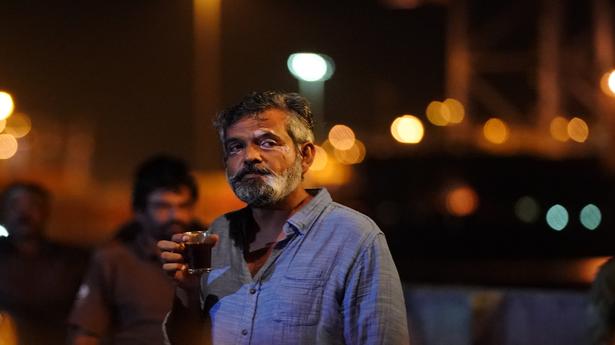
‘Thuramukham’ is the story of Mattancherry, says Rajeev Ravi
The Hindu
The Malayalam multi-starrer with Nivin Pauly in the lead focuses on the early history of the Kochi port. Thuramukham releases on June 10
“For me, filmmaking is a kind of documentation,” says cinematographer-director Rajeev Ravi, whose directorial oeuvre includes critically-acclaimed films such as Kammatti Paadam, Njan Steve Lopez and Annayum Rasoolum.
Over the phone, while travelling to the sets in Mumbai early in the morning, he elaborates: “I am not unduly worried about the box office. Success and money will come and go. I want to document forgotten incidents and events in the recent past that are being erased from our collective memory. At the same time, one should also document contemporary events.”
Rajeev’s directorial films are reaching theatres after six years. Kuttavum Shikshayum, starring Asif Ali in the lead, released on May 27.
His Thuramukham, a multi-starrer, which has been waiting in the wings for two years, is releasing on June 10. Meanwhile, Rajeev is busy filming in Bollywood, working with some of the front rankers of the Hindi film industry.
Talking about Thuramukham, he says it is set on a broad canvas and narrates the story of the Kochi port; it spans the period from the 1930s to the 1950s, when a protest at the port on September 15, 1953 was brutally put down by the authorities and three workers were killed in firing.
“Migrant labourers from different backgrounds, many fleeing from the repercussions of the Moplah rebellion in Malabar (1921-22) and some from places like Kollam have made Mattancherry their home. The history of Kochi and Mattacherry is an interesting one,” says Rajeev.
A strike was organised by the undivided Communist Party in 1953, which formed a union at the port for the first time. Chithira Tirunal Balarama Varma, the last king of erstwhile Travancore, was the main investor in the port. The movie begins before work began on the port and ends with the strike. “A crude way of selecting casual workers for the day, known as the Chappa system, existed then, wherein a metal token was thrown to the workers and those who managed to get one was allowed to work. In the early stages of the port, the Chappa system was controlled by the Moopans and then by unions until the protest was organised against the arbitrary selection of workers. Thuramukham covers that period,” says Rajeev.

 Run 3 Space | Play Space Running Game
Run 3 Space | Play Space Running Game Traffic Jam 3D | Online Racing Game
Traffic Jam 3D | Online Racing Game Duck Hunt | Play Old Classic Game
Duck Hunt | Play Old Classic Game











